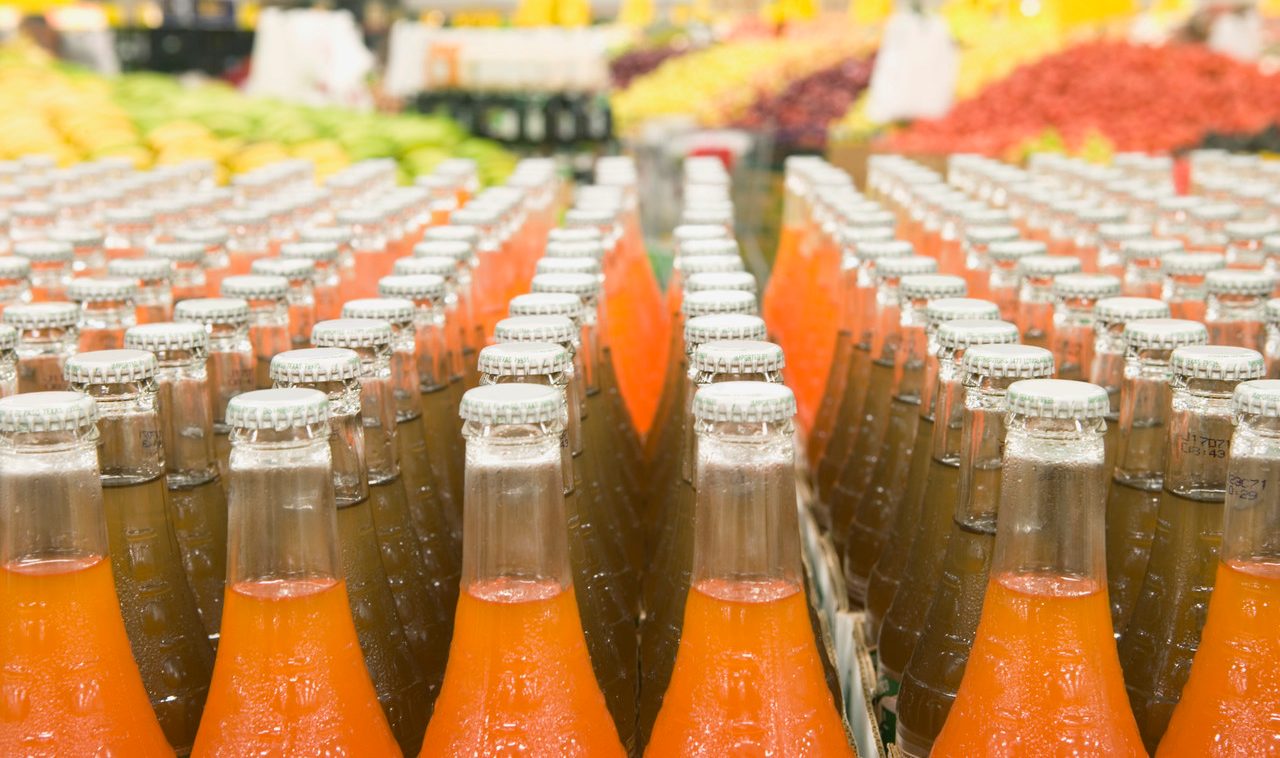How to Kick Your Soda Habit

Health effects such as increased risk of diabetes and heart disease can serve as motivation for you to make better beverage choices. Here's what you should know.
There really isn’t anything good to say health-wise about drinking soda, or soft drinks, if you prefer. Perhaps you already know that, but in the event you don’t, that one fact might motivate you to quit.
When even the U.S. soda industry pledges to help cut Americans’ soda intake by 20 percent over the next decade, that can be seen as a concession that their products aren’t healthy.
YOU MIGHT ALSO LIKE: Is Diet Soda Bad for You?
On average, per person, we drank 39 gallons of soda in 2018 — down from more than 45 gallons in 2010. Much of it is sweetened with high fructose corn syrup, which is particularly bad for us, delivering a kind of energy that is largely converted to fat.
You might think that artificially sweetened drinks are better — but think again. A 2019 study of more than 450,000 adults in 10 European countries found that people who consumed sugar-sweetened soft drinks had an 8 percent greater risk of dying during the follow-up period compared to non-consumers. But people who chose “diet” sodas had a 26 percent greater mortality risk.
Specifically, “diet” sodas increased the risk of dying from heart disease. Separate research has found a link between artificially sweetened soda and cancer.
What’s wrong with soda?
Here’s the rundown on the sugary kind: It increases the risk of diabetes, heart disease, stroke, and other chronic conditions, says the Harvard School of Public Health. In a 2020 study of more than 9,500 adults in Mexico, people who drank five or more cans a week nearly doubled their chance of type 2 diabetes, compared to people who had less than one can a week.
Evidence suggests that soda can affect your bones. It contains high levels of phosphate; consuming more phosphate than calcium may adversely affect bone health. You get a lot of calcium from milk, plus protein, but there’s an inverse pattern between soft drink consumption and milk consumption — when one goes up the other goes down.
In a 2020 study of more than 17,000 adults in China, daily soft-drink consumers nearly tripled their chances of a fracture over the next five years, compared to non-consumers.
Some evidence links soft drinks and asthma. A study in the American Journal of Public Health reported a link between sugar-sweetened soda and cellular aging. Sugary drinks also have been linked, in animal studies, to changes in the brain similar to those seen in many illnesses, including Alzheimer's disease. Researchers have reported that people who drink two to four liters of cola every day are at risk of hypokalaemia, or low potassium levels, and some serious health problems, including chronic diarrhea.
How to kick your soda habit
Now that you know why you should quit soda, you are probably thinking about how. If you ask people who have, or who have tried, you’ll probably hear that it isn’t easy.
Here’s an odd example: professional golfer Peter Lawrie says he sank from being ranked around the 200th best player in the world to 725th because he stopped drinking soda.
“I cut it out completely and went from such a high on sugar to a dramatic low,” he told CBS Sports. “I wouldn’t say I went through a breakdown, but I got exceptionally emotional.”
Certainly, there are other “Lawries” out there. He went from drinking several liters to “two or three” cans a day to find a balance. “(Dropping soda) just didn’t work,” he said. “I don’t know whether it triggered something in my brain or whatever, but I wasn’t the same when I did it.”
So much for cold turkey. You don’t want to do that.
Instead, try substitutes
Start with plain water. Others include flavored water, tea, milk, and seltzer.
Start small and slow
If you drink four cans of soda a day, cut down to two for a couple of weeks then one, then none.
If you like the carbonation, switch to sparkling mineral water, or no-calorie, naturally flavored carbonated water. Carbonation, in and of itself, is not a health risk.
Try switching to unsweetened (not diet) green tea
It not only has health benefits but also contains some caffeine, enough to pull you through. Some afternoons you might be dragging because you aren’t swigging caffeinated soda, but your body adjusts.
Fruit juice is okay as an alternative, but since it contains a lot of sugar, add some seltzer, or the other way around.
Avoid temptation
First, get rid of any soda you have in the house. Chances are, if you can see it, you’re going to drink it. Avoid the soda aisle at the grocery store. It may even help to stay out of convenience stores and gas stations, where you can usually buy extra-large cups of soda.
Here’s the good part. People who have given up soda and gotten past the craving say they feel better. Some mention their gastrointestinal system, others even say their joints don’t ache as much. Best of all, they don’t even want soda anymore, which can’t hurt your self-esteem and sense of accomplishment.
Banish diet drinks
As noted earlier, you won’t benefit by switching to diet soda. It’s not even likely to make you thinner and may make you heavier.
For example, many diet cola drinks are calorie- and sugar-free. Many do, however, contain artificial sweeteners such as aspartame and acesulfame K.
Researchers have reported data that drinking diet soda is linked to bigger waistlines. A separate group concluded in a 2017 overview of the evidence that people who drank diet soda were more likely to be obese than people who drank sugary soda.
Updated:
June 27, 2022
Reviewed By:
Christopher Nystuen, MD, MBA and Janet O'Dell, RN